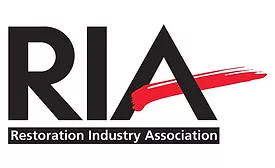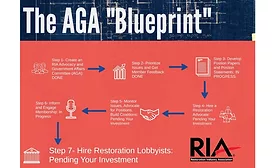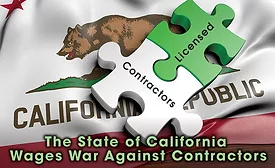Articles by Edward H. Cross Esq., "The Restoration Lawyer"
Restoration Advocacy Report #1
Major steps are being taken by RIA to advocate for the legal and financial interests of restorers.
Read More
Cross Examination: Insurers Profit from Large-Scale Natural Disasters
Cheating the insured and the contractor has never been so lucrative.
Read More
Cross Examination: Accelerating Collections with Mechanic's Liens
Powerful, but dangerous weapons.
Read More
Stay ahead of the curve with our newsletters.
Get the latest industry updates tailored your way.
JOIN TODAY!Copyright ©2026. All Rights Reserved BNP Media.
Design, CMS, Hosting & Web Development :: ePublishing








